Removing implants is not a simple procedure
Made young nose implant removal in Korea
KNOW-HOW 01
Offering customized surgery tailored to each type based on the reasons for implant removal.
KNOW-HOW 02
Preventing inflammation and construction after removing the prothesis.
KNOW-HOW 03
Restoring the shape of the nose tip by rearranging altered nasal tip cartilage.
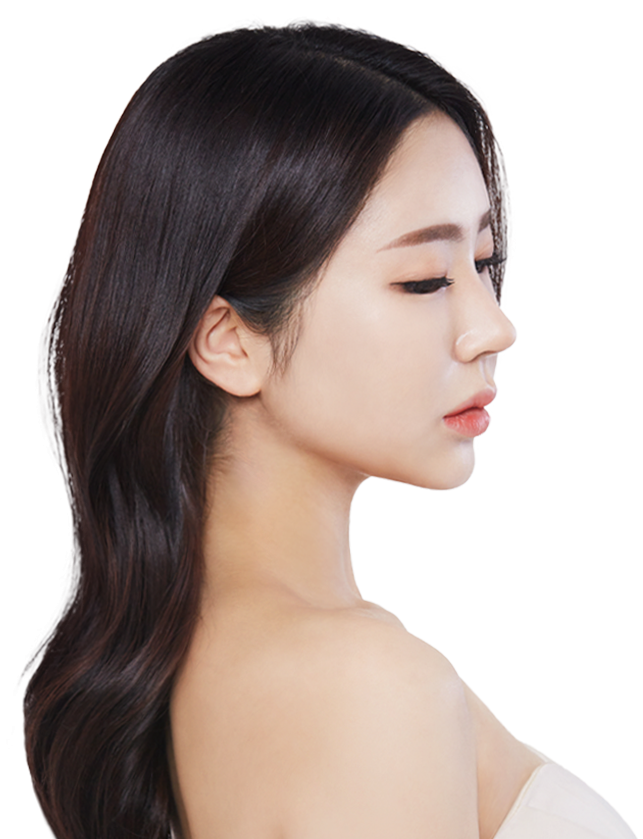
surgery time
About one hour.
anesthesia
Conscious sedation.
Hospitalization
Same-day discharge.
Stitch removal
After seven days.
recovery period
About one week.
Made Young CLINIC IN KOREA
Nose Implant Removal
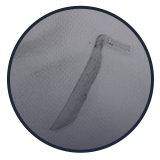
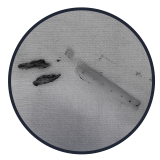
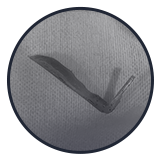
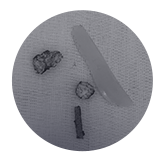
Nasal implant removal surgery is done for reasons like inflammation, contracture, or aesthetic dissatisfaction.
Simply removing a nasal implant can lead to contractures and deformation. Made Young Plastic Surgery prevents this by thoroughly analyzing the removal purpose, skin condition, and internal structure, tailoring the procedure to the specific cause.
Made Young CLINIC IN KOREA
Key points for nose implant Removal
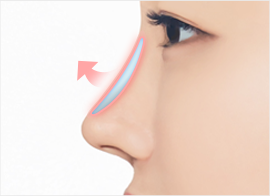
Removal of Skin Tissue
Leaving the body-formed capsule after implant removal can result in inflammation and contracture. Hence, we remove the capsule and skin, contingent on the nose’s condition, to prevent these issues.
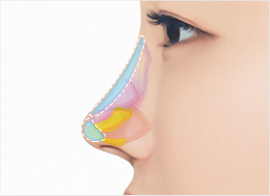
Minimizing Tissue Damage
Since the tissue is damaged due to the previous surgery, tissue damage is reduced through limited dissection, and scarring is minimized through delicate suturing technology.
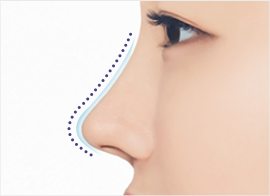
Preventing Shape Deformation
After removal of the nasal implant, the surgery is performed delicately, taking into account the characteristics of the skin and soft tissues of the nose, preventing contracture and shape deformation of the nose.
Customized operating room according to diagnosis and type
Nose Implant Removal by Type
01
INFLAMMATION
The most common cause of nasal implant removal is swelling, pain, or contracture due to inflammation.
02
IMPLANT PROTRUSION
When skin thins from implants, causing visibility or protrusion of the implants or autologous cartilage.
03
FOREIGN BODY SENSATION
When you feel a throbbing or tingling pain at the surgical site, or if you feel pressure or a foreign body sensation in your nose due to the implant.
04
SKIN/SOFT TISSUE DAMAGE
When the skin becomes thin or turns red or white.
05
AESTHETIC DISSATISFACTION
If the implant is curved or artificial, the nose shape is unnatural, or the nose shape is not what you wanted.
06
ANXIETY
When you want to have your nasal implant removed due to psychological factors such as the presence of a foreign object in your nose after surgery, or anxiety about inflammation and contracture.
Restore the deformed nasal tip cartilage at the same time as removing the nasal implant.
Nose Tip Cartilage Relocation
Nasal tip cartilage repositioning is a surgery that repositions the deformed nasal tip cartilage to its original position and shape.
If contracture, asymmetry, or deformation occurs after rhinoplasty, nasal tip cartilage must be realigned at the same time as the nasal implant is removed to prevent deformation of the tip of the nose.
When Nasal Tip Cartilage Relocation is Necessary
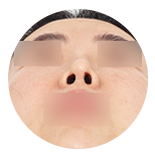
nostril asymmetry
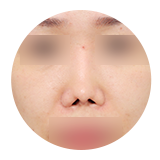
Stiff nose tip
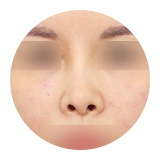
curved nose tip
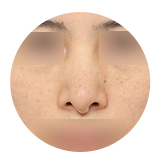
columellar tilt
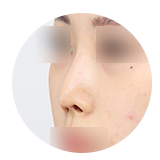
Nose tip cartilage deformation and damage
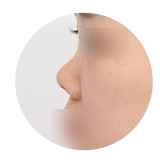
Constricted nose / lifting of the tip of the nose
At Made Young Plastic Surgery, we perform customized nose surgery by removing nasal implants and repositioning the cartilage at the tip of the nose, depending on each individual’s nose condition.
nose implant removal
Not a simple procedure.
Removal of nasal implants is not simply a surgery to remove only the implants. It is a highly complex surgery that must be performed delicately by accurately analyzing the current condition of the nose, the purpose of implant removal, and the condition of the nasal cartilage. Made Young Plastic Surgery does not have a standardized surgical method. Instead, we perform personalized surgery using specialized surgical methods.
“We do our best to treat each and every patient with strict standards so that this can be their first and last revision rhinoplasty.”
Medical staff dedicated to rhinoplasty
Director Min Seong-gi, Plastic surgery specialist
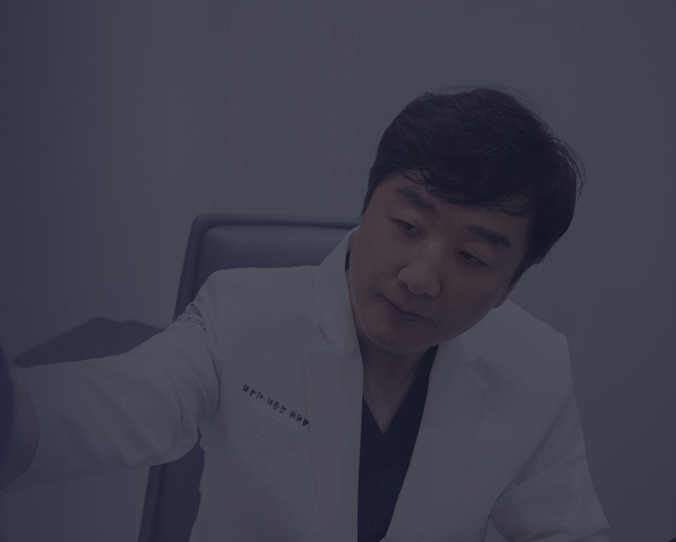
Anesthesiologist and Pain Medicine Specialists in Residence: Patient Safety is our Top Priority
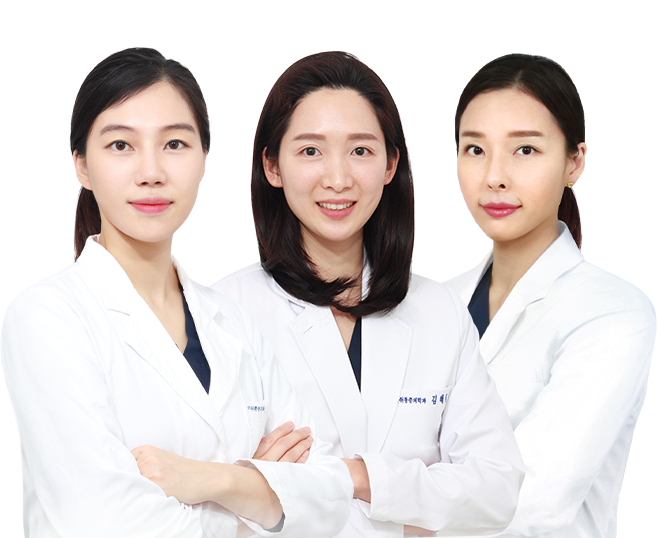
monitoring
Systematic 1:1 monitoring of the entire surgical process.
safety
Establishment of the latest medical equipment and emergency safety systems.
Expert
Three resident anesthesiologists and pain medicine specialists.
At Made Young Plastic Surgery, an anesthesiology specialist evaluates patients prior to surgery and monitors them in real time, one-on-one, until completed, ensuring a safer surgical experience.
Considering beauty and safety
3D-CT precise analysis system
Made Young Plastic Surgery uses an advanced 3D-CT precision analysis system to establish a more accurate surgical plan. It three-dimensionally analyzes the size and shape of the nasal bone, the structure, and size of the nasal septum, as well as any asymmetries that cannot be confirmed with the naked eye.
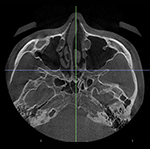
Degree of Angle and Nasal Septum Deviation
By checking various symptoms, such as the condition of the nasal bone or cartilage and septum deviation, we can improve not only the cosmetic, but also the functional aspect of the surgery plan.
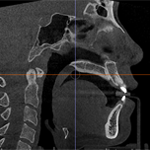
Analyzes Size and Shape of the Nasal Bones
By accurately analyzing the size and shape of the nasal bone and the condition of the septal cartilage before surgery, a more detailed surgical plan can be established.

Frequently Asked Questions
What is involved in the nose implant removal procedure in Korea at Made Young?
The nose implant removal at Made Young involves a customized surgery that considers the reasons for removal, preventing inflammation and reconstructing the nose tip by rearranging the nasal tip cartilage. The procedure is performed with conscious sedation and typically allows for same-day discharge, with a recovery period of about one week.
Why is nose implant removal not a simple procedure?
Nose implant removal is complex and requires careful consideration of the current nasal condition, purpose of removal, and nasal cartilage state. It involves not just removing the implant but also preventing issues like tissue damage, inflammation, and nose deformation, necessitating specialized surgical techniques and personalized care.
What are the common reasons for undergoing nose implant removal surgery in Korea?
Common reasons for nose implant removal include inflammation, implant protrusion, foreign body sensation, skin or soft tissue damage, aesthetic dissatisfaction, and anxiety related to implant presence. Each cause demands a tailored approach to ensure a safe and effective outcome.
